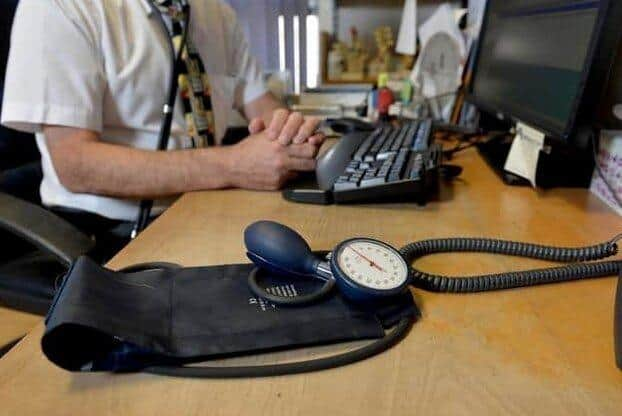Majority of GPs in favour of industrial action amid prospect of Autumn closures
Further steps were backed by 72 per cent of GPs surveyed by GP Online, with 83 per cent of those asked citing burnout and stress, as well as the same number saying pay and funding was a key issue.
It comes after the British Medical Association (BMA) held a referendum on the new contract for family doctors, where members rejected the proposed deal by 99.2 per cent.
Advertisement
Hide AdAdvertisement
Hide AdEarlier this year the BMA suggested that the profession could be balloted to take industrial action to coincide with a general election in November or December.


The doctor’s trade union is set to hold roadshows over the summer to establish which forms of industrial action it could take later in the year.
The BMA has said that the 1.9 per cent funding uplit for next year means that many GP surgeries will struggle to be financially viable.
Dr David Wrigley, deputy chairman of the British Medical Association’s (BMA) England GP Committee, said that the funding means that practices will not have enough money to look after their patients.
Advertisement
Hide AdAdvertisement
Hide AdAsked about the possibility of strikes, he told LBC: “Like our junior doctor colleagues and consultants, we’d never want to go on strike… (but) it would be naive to think it’s not on the table.”
Clare Bannon, who is a South Yorkshire representative on the BMA’s General Practice Committee, told The Yorkshire Post that the suggested uplift in GP’s contracts was “ridiculous” given the rising costs that practices are facing such as paying staff.
“In a practice like mine, I’m looking at increased costs of around £90,000, with only around £20,000 increase in my contract value. Where do I find the other £70,000 from?
“The reason we’re considering taking further action, is that it’s just becoming unviable to keep a practice afloat.
Advertisement
Hide AdAdvertisement
Hide Ad“They want to take industrial action because they are worried that the NHS is going to end and they want their patients to have to pay, and for the NHS to be privatised.”
“We are well remunerated, we’re just not able to provide the service we are wanting to provide.
“Every single week I get a message saying “come and work here” from people in other countries. They all pay massively more than here.
“The GPs that are being attacked in this country are the ones that are staying because they want to put patients first.
Advertisement
Hide AdAdvertisement
Hide Ad“When patients say “oh don’t GPs get paid a lot”, the GPs they’re talking about are the ones that are choosing to stay for less money, and worse quality of life because they believe in the NHS and they want to provide a service for their patients.”
It comes amid a new poll of patients that found that one in 20 people who called their GP for help are told to call back another day, with more than one in 10 being told they would need to wait for more than two weeks for care.
Among those people who tried to contact a GP practice in the past month for themselves or for someone else, nearly half (49.4 per cent) said it was very easy or easy while nearly a third (31.3 per cent) said it was very difficult or difficult, according the new survey by NHS England and the Office for National Statistics (ONS).
A Department of Health and Social Care spokesman said: “GPs and their teams are at the heart of our communities, and we hugely value their vital work. It is therefore disappointing that the BMA is considering industrial action, which will disrupt everyday care for millions of patients and impact on those who work in practices.
Advertisement
Hide AdAdvertisement
Hide Ad“We have listened to feedback from general practice and the new contract will reduce unnecessary and burdensome bureaucracy. This will free up capacity so they can spend more valuable time with their patients, whilst also giving them greater autonomy to run local practices.”